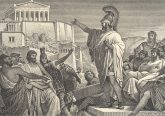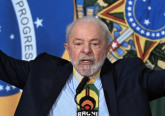 From the University of Cambridge comes ELECTION, an insightful politics podcast; asking the questions that no one else is in the run-up to the British General Election with the most interesting people inside and outside the political arena. Here below are the latest podcasts.
From the University of Cambridge comes ELECTION, an insightful politics podcast; asking the questions that no one else is in the run-up to the British General Election with the most interesting people inside and outside the political arena. Here below are the latest podcasts.
#9 – Simon Szreter on conspiracy theories, trust in politics & solutions
It is said that trust in politics is at an all-time low. Our politicians are seen as out of touch and out to fill their own pockets. But when does mistrust become something more profound? This week we discuss this phenomenon in its most extreme form: conspiracy theories. What conspiracy theories do the British public believe? How commonplace are they, and how have they spread? Are people really so wrong to believe that the world is run by a secret elite? We interview a team of Cambridge researchers for answers. Then David turns to Professor Simon Szreter – social historian and founder of ‘History & Policy’ – to discuss how academics are trying to find ways of restoring the public’s faith in politics, and bridge the gap between the politicians’ narrow view of the world and how the voters see it. The team also discuss the television debates, politicians’ use (and abuse) of facts and figures, Tony Blair, and UKIP’s strategy for electoral success.
#10 – Barbara Sahakian on political psychology, society & mental health
Are our brains hardwired to be left-wing or right-wing? How did mental health become a hot political issue? What advice can brain scientists give politicians to help get their message across? This week David interviews Professor Barbara Sahakian – the renowned neuropsychologist who has worked with the UK government on questions of mental health and well-being – to discover the lessons of new scientific research for our politics. The team then discuss the Labour and Conservative manifestos and the inner tensions they reveal within the parties, and what their pledges really mean in an age of coalitions and compromise. And, in the week when Hilary Clinton declared her presidential candidacy, we debate the time spans of political campaigns in the U.K. and the U.S., and the different ways the two countries do politics.
#11 – Sherry Coutu on education, stimulating business & coalitions
In this election the economy has been centre stage – we know what the politicians think, but what about the business community? Are the fortunes of British business rising or falling? Can the UK economy really compete with the likes of China and the US? How can our education system prepare the next generation for the global marketplace? David puts these questions to Sherry Coutu CBE – one of this country’s most respected entrepreneurs and investors – to discuss the relationship between business, technology, and government. The team also debate whether democracies can grapple with complex economic problems; plus first-past-the-post in multi-party elections, the fate of the Liberal Democrats, and in light of this week’s election result in Finland, our tendency to idolise Nordic politics.
#12 – Richard N. Haass on foreign policy, the US perspective on this election & Northern Ireland PLUS Student apathy in 2015
K politicians have defined this election as the most important for a generation, but is that how it’s seen outside the British bubble? Is this an election with worldwide implications, or has it been blown out of proportion? And why has foreign policy been so neglected in this campaign? We put these questions to Richard N. Haass – senior American diplomat, President of the Council on Foreign Relations, and adviser to four US Presidents from George HW Bush to Barack Obama – to discuss our election through American eyes. We then turn to Northern Ireland where Mr Haass was US Special Envoy, to discuss the peace process, NI’s potentially important role in this election, and whether The Troubles are truly over.
Also this week, we ask a group of first time student voters for their perspective – what’s been memorable about their first election, why apathy is so prevalent among young people, and is there room for any optimism about the future? Finally, the regular team discuss the similarities and differences between the 1992 and 2015 general elections, the coalition options no-one is talking about, and whether Ed Miliband was right to engage with Russell Brand.
#13 – David Howarth on winning an election, Polling Day & predictions
With one day to go, we interview the former politician and academic David Howarth – who won a surprise victory to become the Liberal Democrat MP for Cambridge in 2005 – for his insight on the twists and turns of Polling Day, and the daily pressures of life in Westminster. In a refreshingly candid discussion, he reveals why the ‘public mood’ is a myth, what it’s really like on the campaign trail, why the legacy of the MP expenses scandal makes him fear for the future of our democracy, and how Alex Salmond predicted the key role of minor parties almost a decade ago. Also in this episode, we speak to Khue Pham – foreign correspondent for the leading German newspaper Die Zeit – for a German’s perspective on the quirks of British elections, and whether a grand coalition of Labour and the Conservatives is the answer to our political stalemate. Finally, our regular panel assess their predictions from earlier podcasts, and give their own forecasts for the final results.







No Comment